Resources
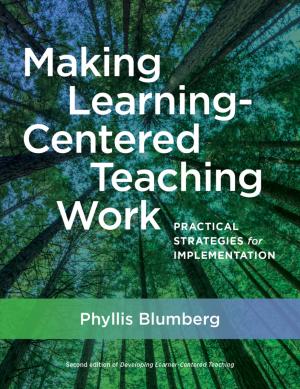
This is a substantially expanded and enhanced revision of Phyllis Blumberg’s acclaimed and bestselling book, Developing Learner-Centered Teaching: A Practical Guide for Faculty (Jossey-Bass, 2009). This easy to follow how-to-guide provides faculty with both a thorough introduction to this evidence-based approach to teaching and practical guidance on how to progressively implement it to strengthen the impact of their teaching. It demonstrates how they can integrate learning-centered teaching into their classroom practice without sacrificing content and rigor, and how to positively engage students in the process by demonstrating its impact on their mastery and recall of key concepts and knowledge. An added outcome, given that learning-centered teaching is correlated with improved student learning, is the resulting assessment data that it provides faculty with the measures to meet the increased demands by accreditors, legislators and society for evidence of improved teaching and learning outcomes. Phyllis Blumberg demonstrates how to use rubrics to not only satisfy outside requirements and accreditation self-studies but, more importantly, for faculty to use for the purposes of self-improvement or their teaching portfolios. She provides examples of how the rubrics can be used to ascertain whether college-wide strategic plans for teaching excellence are being met, for program review, and to determine the effectiveness of faculty development efforts. The book includes the following features: - Boxes with easy-to-implement and adaptable examples, covering applications across disciplines and course types - Worksheets that foster easy implementation of concepts Rubrics for self- assessment and peer assessment of learning-centered teaching - Detailed directions on how to use the rubrics as a teaching assessment tool for individuals, courses, and programs - List of examples of use classified by discipline and type of course Phyllis Blumberg offers Making Learning Centered Teaching Course Design Institutes and workshops on this and other teaching and assessment topics. Half day to multiple day modules. (From the Publisher)
A special issue of Teaching Theology & Religion on games and learning.
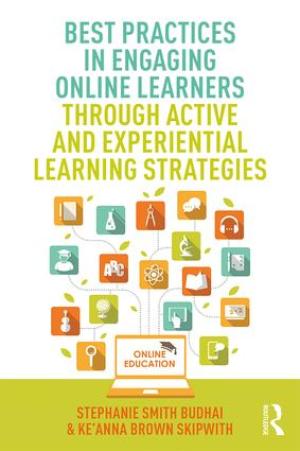
Click Here for Book Review Best Practices in Engaging Online Learners Through Active and Experiential Learning Strategies is a practical guide for all instructors and instructional designers working in online or blended learning environments who want to provide a supportive, engaging, and interactive learner experience. This book explores the integration of active and experiential learning approaches and activities including gamification, social media integration, and project- and scenario-based learning, as they relate to the development of authentic skill-building, communication, problem-solving, and critical-thinking skills in learners. Readers will find guidelines for the development of participatory peer-learning, cooperative education, and service learning opportunities in the online classroom. In addition, the authors provide effective learning strategies, resources, and tools that align learner engagement with course outcomes. (From the Publisher)
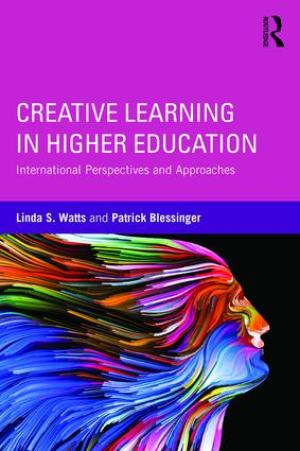
Click Here for Book Review This book provides higher education faculty and administrators a scholarly resource on the most salient aspects and emerging trends in creative learning in higher education today. International contributors explore ways to foster creativity in any student, regardless of academic discipline or demographic characteristics and demonstrate that creativity is a skill all students can and should learn. Chapters analyzes how different countries and cultures implement creative learning, exploring issues of instruction, assessment, and ultimately how these practices are transforming learning. This important book helps higher education professionals understand and cultivate creative learning across disciplines in any college and university setting. (From the Publisher)
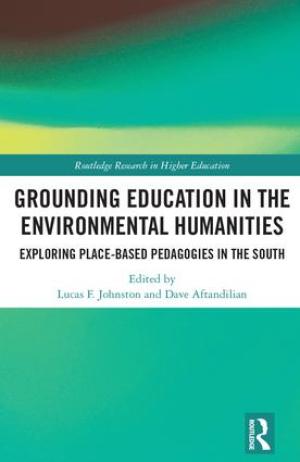
This edited volume draws together educators and scholars to engage with the difficulties and benefits of teaching place-based education in a distinctive culture-laden area in North America: the United States South. Despite problematic past visions of cultural homogeneity, the South has always been a culturally diverse region with many historical layers of inhabitation and migration, each with their own set of religious and secular relationships to the land. Through site-specific narratives, this volume offers a blueprint for new approaches to place-based pedagogy, with an emphasis on the intersection between religion and the environment. By offering broadly applicable examples of pedagogical methods and practices, this book confronts the need to develop more sustainable local communities to address globally significant challenges. (From the Publisher)
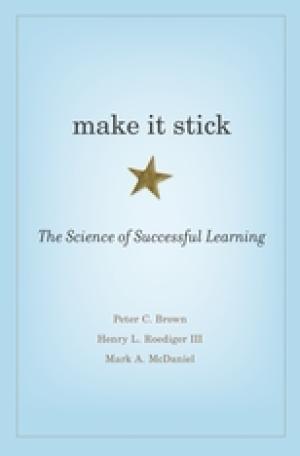
To most of us, learning something “the hard way” implies wasted time and effort. Good teaching, we believe, should be creatively tailored to the different learning styles of students and should use strategies that make learning easier. Make It Stick turns fashionable ideas like these on their head. Drawing on recent discoveries in cognitive psychology and other disciplines, the authors offer concrete techniques for becoming more productive learners. Memory plays a central role in our ability to carry out complex cognitive tasks, such as applying knowledge to problems never before encountered and drawing inferences from facts already known. New insights into how memory is encoded consolidated, and later retrieved have led to a better understanding of how we learn. Grappling with the impediments that make learning challenging leads both to more complex mastery and better retention of what was learned. Many common study habits and practice routines turn out to be counterproductive. Underlining and highlighting, rereading, cramming, and single-minded repetition of new skills create the illusion of mastery, but gains fade quickly. More complex and durable learning come from self-testing, introducing certain difficulties in practice, waiting to re-study new material until a little forgetting has set in, and interleaving the practice of one skill or topic with another. Speaking most urgently to students, teachers, trainers, and athletes, Make It Stick will appeal to all those interested in the challenge of lifelong learning and self-improvement. (From the Publisher)
In the undergraduate classroom, tabletop games can aid both teaching and learning – especially when accompanied by debriefing exercises following gameplay. In particular, tabletop games enable undergraduate learners to practice the 21st century skills of collaboration, communication, and critical thinking. This qualitative study examines three cases from the disciplines of practical theology, systematic theology, and history, utilizing the methods of classroom video recordings, written assessments from students and professors, and student debriefing exercises. In this study, undergraduate students (n = 46) and undergraduate professors (n = 3) reflect upon and self‐report their experience playing tabletop games in the classroom. Students and professors report that tabletop gameplay appears to intensify active learning, classroom engagement, and student motivation – a powerful blend for the retention of course content.
Games offer unique possibilities for learning, and text‐based interactive fiction (“IF”) in particular lends itself as a low barrier to entry for instructors and students wishing to build interactive narrative games. Understanding by Design provides a framework by which to determine the best possible places for instructor‐ and learner‐built IF in any given course, whether face‐to‐face or online. A thick description of how an instructor conceived and developed two IF games follows, explicitly tied to course‐design considerations like learning goals and assessment performances. The value of IF as a student project is explored, and finally an appendix provides resources for instructors and students to begin building their own interactive fiction.
Lost & Found is a game series, created at the Initiative for Religion, Culture, and Policy at the Rochester Institute of Technology MAGIC Center.1 The series teaches medieval religious legal systems. This article uses the first two games of the series as a case study to explore a particular set of processes to conceive, design, and develop games for learning. It includes the background leading to the author's work in games and teaching religion, and the specific context for the Lost & Found series. It discusses the rationale behind working to teach religious legal systems more broadly, then discuss the hermeneutics influencing the approach to understanding the legal systems being modeled, and closes with a discussion of the kind of teaching and learning involved in the design of the games and early stage data on the public play of the games.
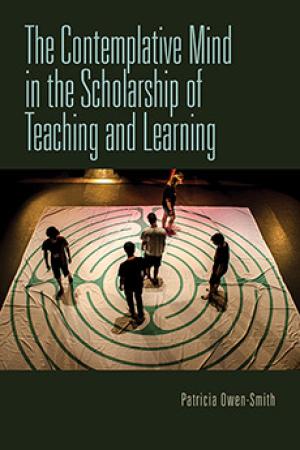
In The Contemplative Mind in the Scholarship of Teaching and Learning, Patricia Owen-Smith considers how contemplative practices may find a place in higher education. By creating a bridge between contemplative practices and the Scholarship of Teaching and Learning (SoTL), Owen-Smith brings awareness of contemplative pedagogy to a larger audience of college instructors, while also offering classroom models and outlining the ongoing challenges of both defining these practices and assessing their impact in education. Ultimately, Owen-Smith asserts that such practices have the potential to deepen a student’s development and understanding of the self as a learner, knower, and citizen of the world.